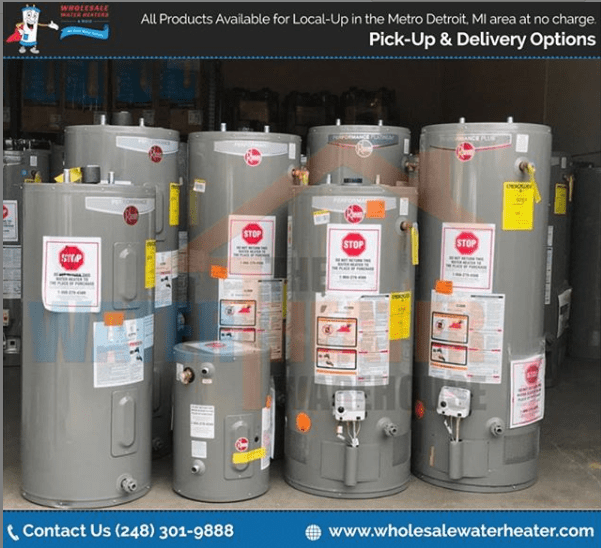
5 Tips on Buying the Perfect Water Heater
| Atlas Plumbing
The average household consumes about 64 gallons of water per capital reach day. About 20% of your household budget which forms a significant part of your your total utility bill will be spent on heating the water that your household consumes. The decision to buy a water heater is a decision that you can’t afford to take lightly.
However, people who are buying water heaters for the first time might find themselves in unfamiliar terrain about making the smartest decision. This piece provides 5 valuable tips that you help you buy the best water heater for your needs.
- Capacity Counts
The size of the water heater you’ll buy should be dependent on the number of people in your house and the peak water usage of the entire household. Small households with 1-3 people will find small tank water heaters holding between 30 to 40 gallons of water to be adequate. If you have between 3 to 5 people in your household, medium-sized tanks that hold 40 to 50 gallons of water will be enough to meet your needs. You should opt for larger tanks that hold between 60 to 80 gallons of water if you have more than six people living in your household.
- Know the most important features
The different kinds of features in a water heater often forms a critical determining factor that will influence your decision to buy the heater or not. There’s no one-size-fits-all rule on features, but it is important to pay attention to key features; you’ll ideally want to buy a water heater with the longest warranty you can find. More so, water heaters with brass drain valves are always a better deal than the ones with plastic drain valves.
- Be proactive about managing hard water and corrosion
Hard water and the presence of chemicals that corrode the pipes and the inside of water heaters are an important factor that should influence your choice of a water heater. If you have hard water; you’ll be better off buying a corrosion resistant water heater from the start. Glass-lined tanks or titanium enamel coated tanks will reduce corrosion and they are best suited for areas with hardwater.
- Buy a water heater with most cost-effective fuel type
Water heaters get their heating energy from different sources such grid electricity, solar energy, propane, natural gas, and oil among others. Confirm how much your local utility company charges for off-peak electricity rates for water heating and then crunch the numbers. Natural gas and propane water heaters typically cost less to run than electric water heaters. If you live in a place with decent sunshine, you may want to consider a solar water heater or heat pump water heater.
- Don’t scrimp on Energy efficiency
When buying a water heater, you should pay special attention to its energy factor (EF) which is a function of its cycle losses, standby losses, and recovery efficiency. Water heaters with high EFs are generally more efficient that water heaters with low EFs. Interestingly, the water heaters with higher EFs will have a higher price tag and you might be tempted to purchase ones with a lower EF especially when all other features appear to be the same. However, you’ll eventually find out that the seemingly cheapest water heaters tend to be the most expensive in terms of how much energy they consume.







